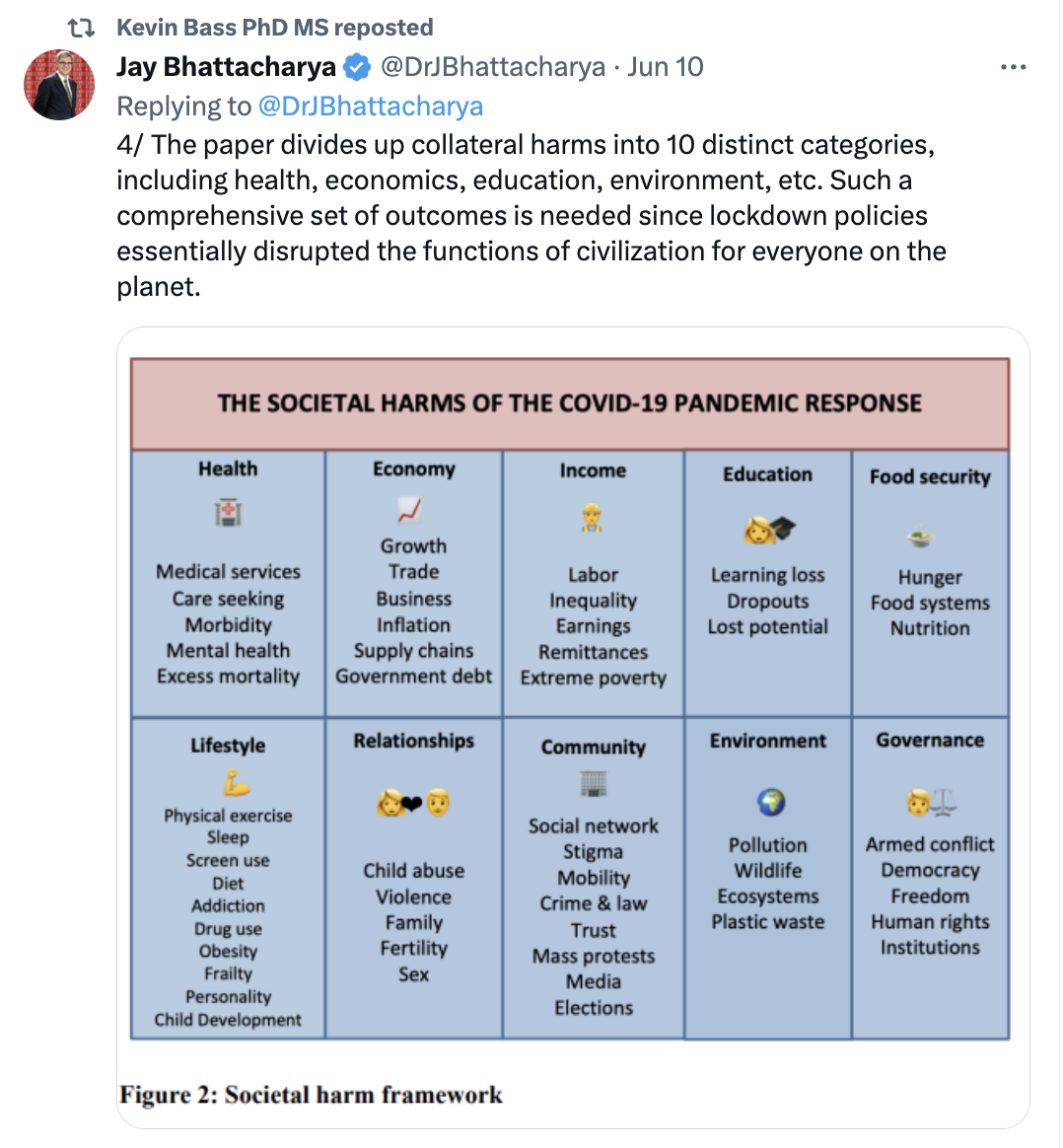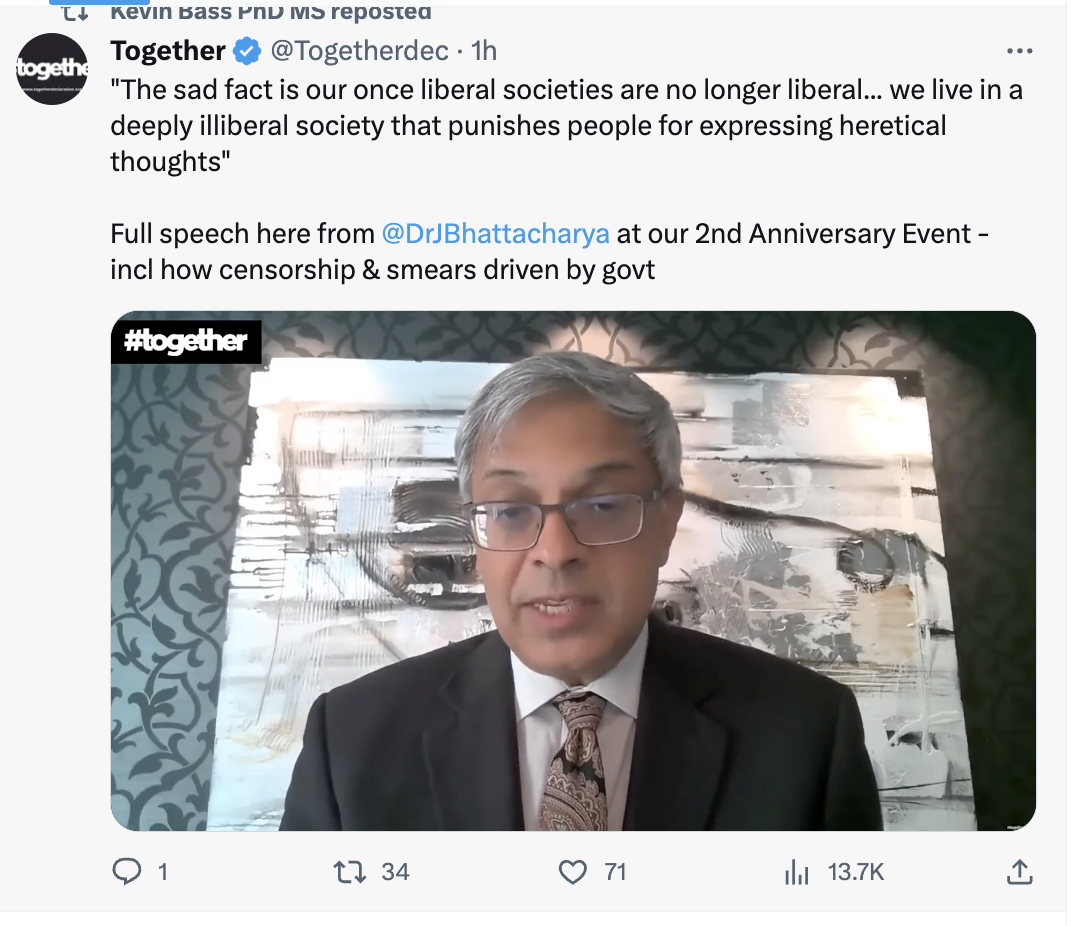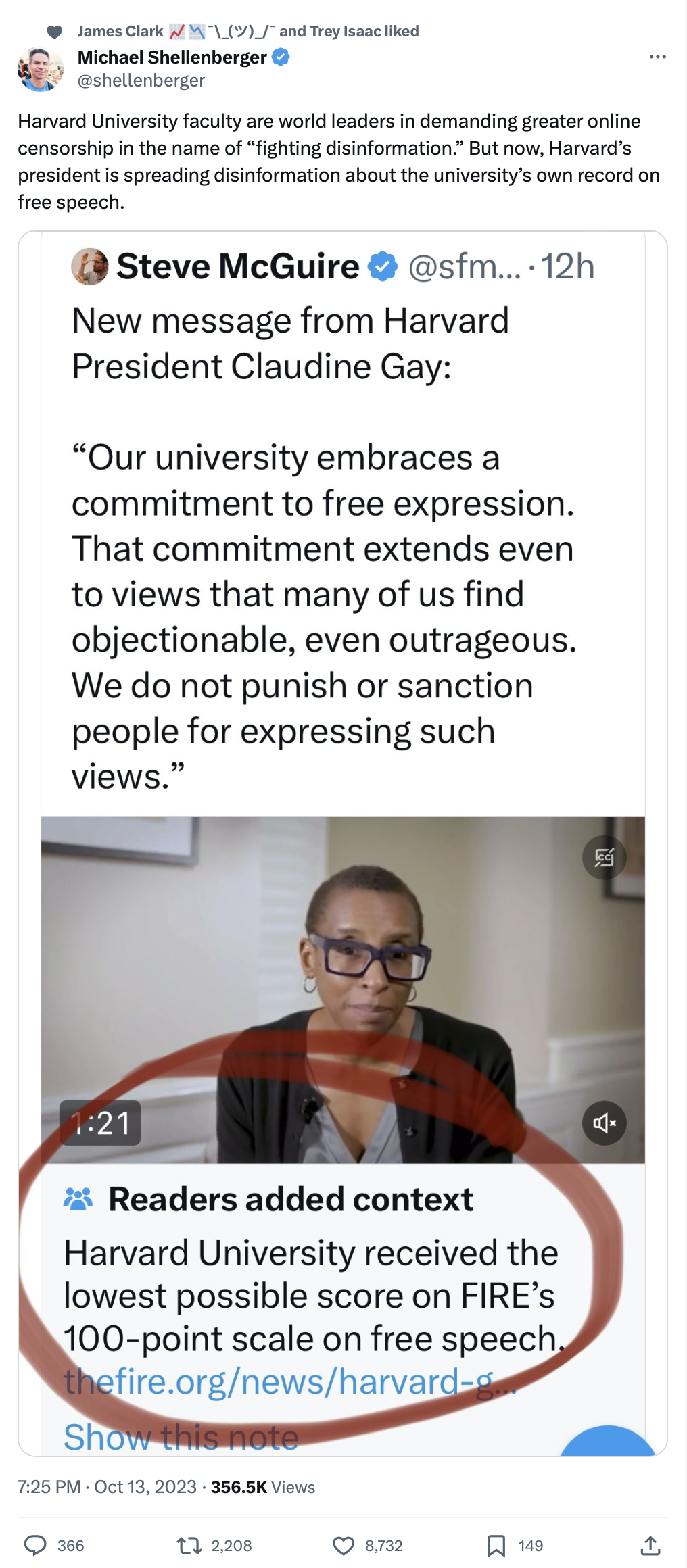Dr. Jay Bhatacharya’s Amazing Story
If you asked me five years ago, I might have struggled to name many people I considered to be heroes. I have many heroes now, many of them people who stood up to censorship. Dr. Jay Bhattacharya is a highly credentialed doctor, which means that we should have been allowed to hear his opinions during the pandemic. But he was censored, so we did not learn of all of these harms that a lock-down would create:
In the following interview, Dr. Bhattacharya tells his story, including his contributions to the Great Barrington Declaration to his role in the case of Missouri v Biden, which appears destined to be heard by the U.S. Supreme Court.
I created the following transcript for those who absorb details better through reading:
The sad fact is that we are living in a time where our once liberal societies are no longer liberal. We live in a deeply illiberal society that punishes people for openly expressing heretical thoughts. And that statement that I just made that we live in, in illiberal society requires some justification. I mean, nominally, we have democracies with constitutions, charters, whatever committed to essential civil liberties necessary for a liberal society.
And I admit, before the pandemic, I took these rights for granted. I took the right to free speech for granted. The right to worship. The right to protest the right to free movement across borders. But during the pandemic, what I learned was that the government could violate each and every one of these rights in the name of infection control. During the pandemic, governments made it nearly impossible for independent scientists to discuss and disseminate ideas contrary to government public health policy. The government censored smeared and defamed dissident scientists who criticized government authorities in the name of science. And I say this from firsthand experience.
[More . . . ]



